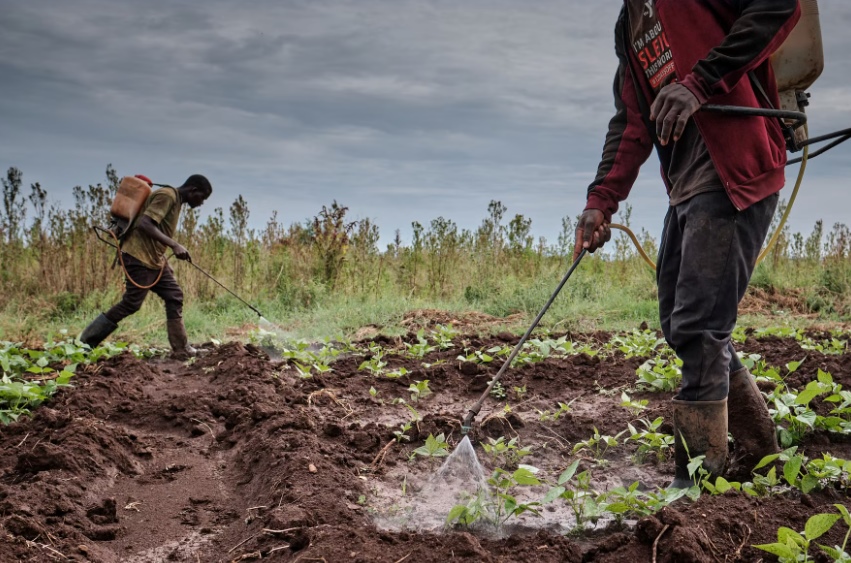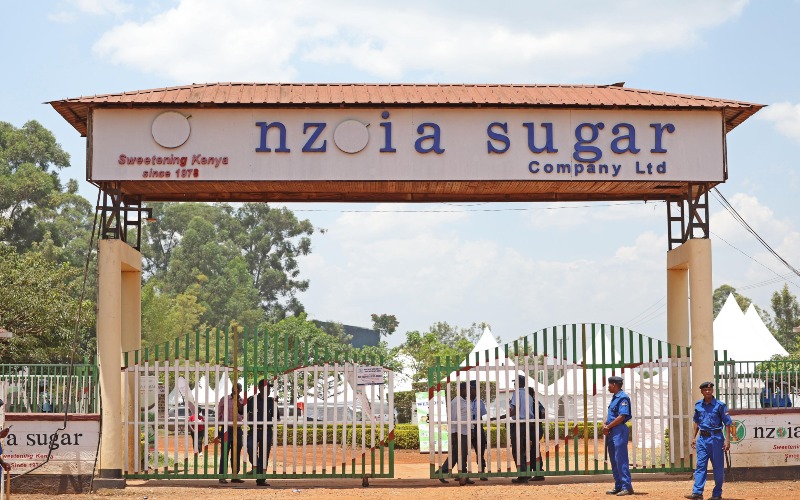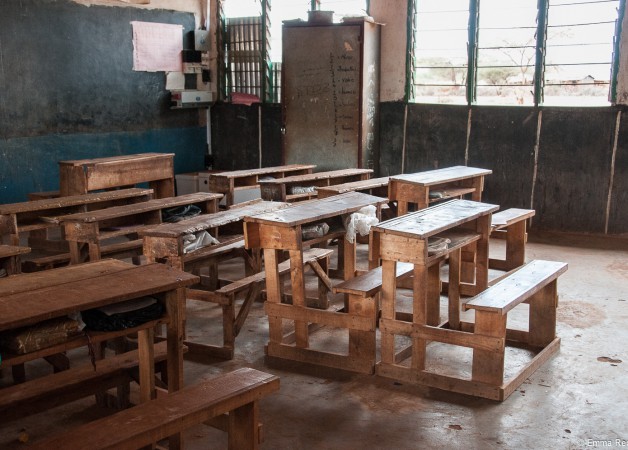Banned EU pesticides harming Kenyan farmers, report warns

According to the report, while many of these pesticides are considered dangerous for use in Europe, they are still legally produced and sold to other countries.
Kenyan farm workers and communities are suffering serious health and environmental impacts from pesticides imported from Europe, a new report by Swedish NGO Swedwatch has warned.
The report, titled Poison for profit - The Cost of EU Double Standards on Biodiversity, Human Health and Livelihoods, notes that European companies are exporting pesticides banned in the region to other countries like Kenya, where they endanger farm workers and the environment.
More To Read
- CS Kagwe orders integrated pest management to save macadamia nuts
- Court confirms public notice in pesticide ban petition, allows farmers to join case
- Activists seek ban on dangerous pesticides threatening health, bees and exports in Kenya
- Kenya bans 77 pesticides, restricts 202 in major agrochemical crackdown
- Farmers, activists demand full disclosure on pesticides ban amid health and legal fears
- Over 50 pesticide brands banned as state moves to protect public health
According to the report, while many of these pesticides are considered dangerous for use in Europe, they are still legally produced and sold to other countries, highlighting Europe's inconsistent approach to human rights and environmental protection.
The report, which used Kenya as a case study, was based on research conducted by Swedwatch and the Kenya Organic Agriculture Network (KOAN) in partnership with the Swedish Society for Nature Conservation (SSNC).
"It is deeply troubling that chemicals considered too dangerous for Europeans are still being exported from Europe to the rest of the world. This practice undermines human rights and risks having disastrous impacts on the environment," said the report's author, Olof Björnsson.
The risks identified in Kenya are similar to those in many other low- and middle-income countries, where farmers use European-made pesticides that are banned within the EU to grow fruits and vegetables.
The report also warns that trade in toxic pesticides is not only unethical but economically unsound, as EU border officials often block vegetable shipments found to contain high levels of banned chemicals. When this happens, Kenyan farmers, who are least to blame, are forced to bear the cost of destroying the rejected produce.
"Such an arrangement is both unjust and flawed, particularly when more sustainable alternatives are entirely achievable. If Europe manages to farm without these chemicals, so can the rest of the world," said Björnsson.
The study further found that persons interviewed reported experiencing health problems ranging from cancer, skin and eye irritation to breathing difficulties, with some cases resulting in death.
"Health professionals report increasing cancer rates in agricultural regions, while farmers note impacts on biodiversity, including the disappearance of bees and other pollinators. Other environmental impacts, such as contaminated water sources, are also being reported," the report reads.
While the report acknowledges Kenya's efforts to protect its citizens and its environment, including the banning of 77 highly hazardous pesticides and restricting over 200 others in June, it warns that responsibility must not fall solely to importing countries.
"It should never be up to affected countries to clean up the consequences of Europe's harmful exports. EU-based companies and policymakers must ensure that no banned pesticides are produced or exported anywhere," Alice Blondel, Director at Swedwatch, said.
The NGO subsequently urged European policymakers to ban the export of pesticides prohibited in the EU and implement mandatory Human Rights and Environmental Due Diligence (HREDD)
"Stop offloading the responsibility for your failed Human Rights and Environmental Due Diligence (HREDD) onto farmers and urgently phase out the production and sale of harmful pesticides," it recommended.
"Conduct risk-based human rights due diligence by prioritising the most severe impacts connected to pesticides – across the supply chain."
Top Stories Today











































